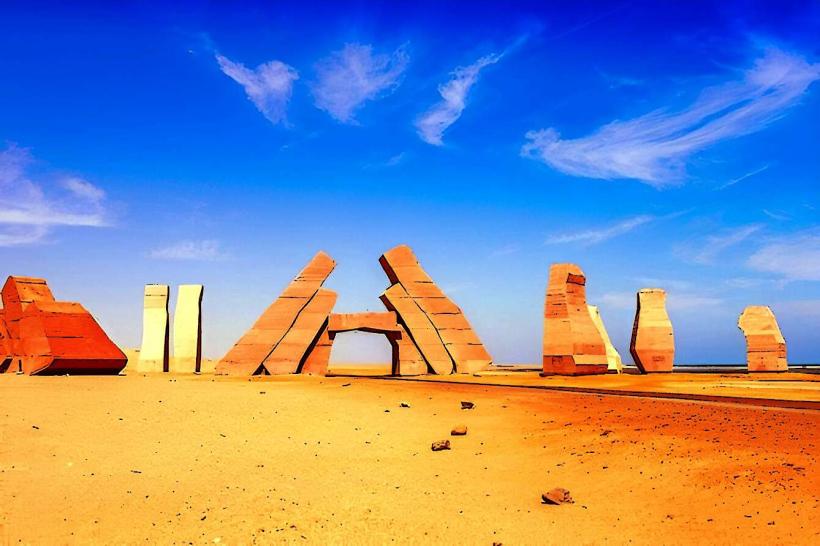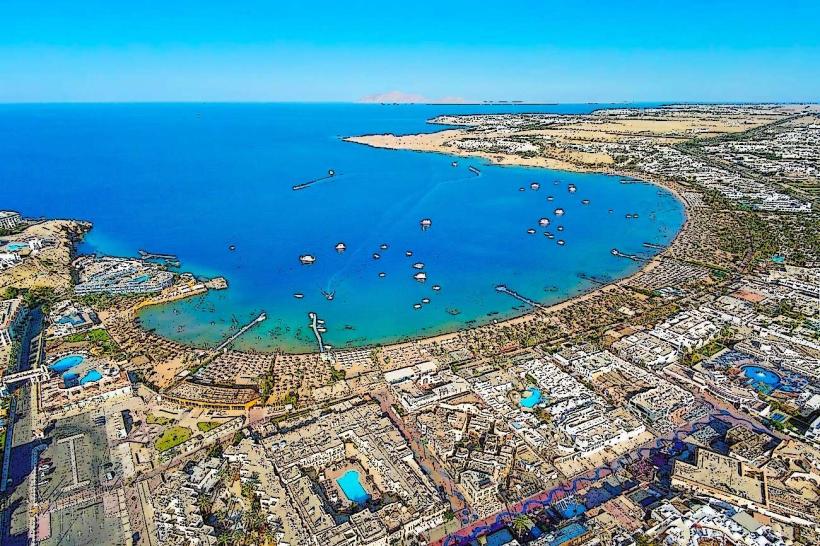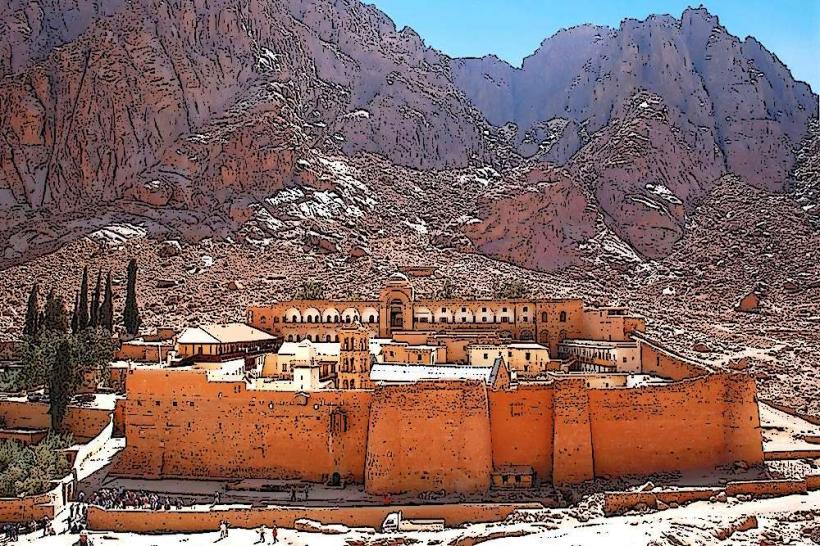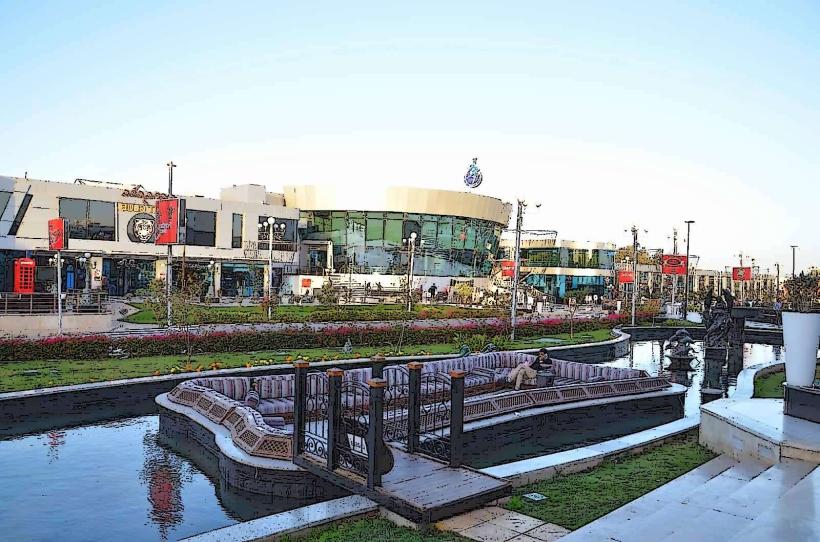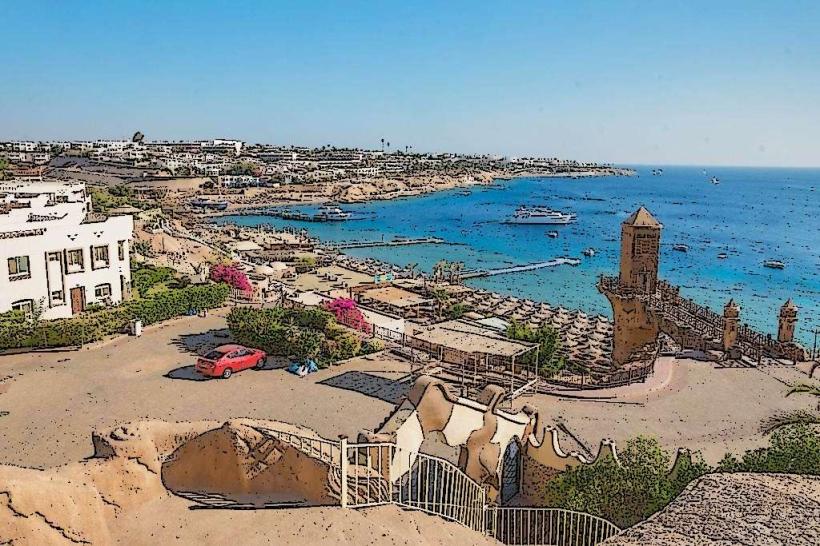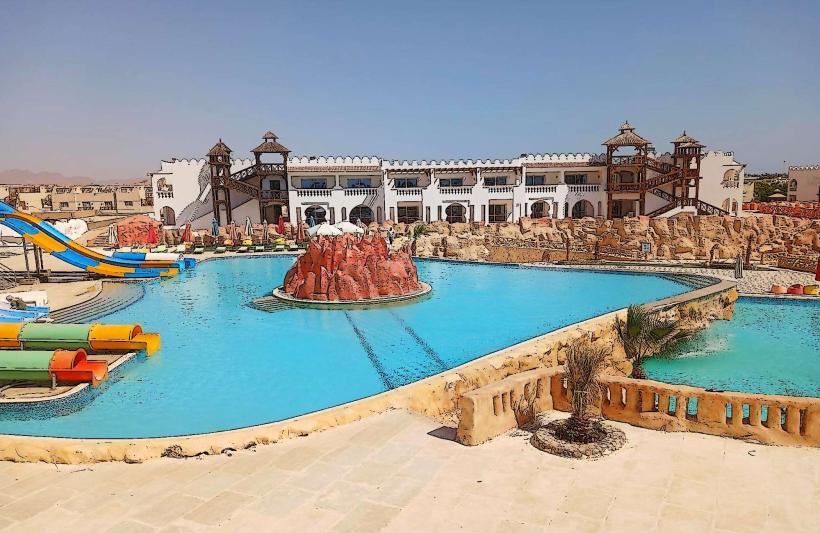Information
Landmark: Al-Mustafa MosqueCity: Sharm El Sheikh
Country: Egypt
Continent: Africa
Al-Mustafa Mosque, Sharm El Sheikh, Egypt, Africa
Al-Mustafa Mosque is a prominent religious structure located in the city of Sharm El Sheikh, Egypt.
This mosque serves as a significant spiritual and architectural point of interest within the resort town.
Visual Characteristics
The mosque features a white limestone exterior. Its design incorporates a central dome, flanked by two minarets, each reaching approximately 70 meters in height. The architectural style blends traditional Islamic elements with modern construction techniques. The main prayer hall is illuminated by large arched windows.
Location & Access Logistics
Al-Mustafa Mosque is situated in the Hadaba district of Sharm El Sheikh. It is approximately 5 kilometers south of the city center. Access is via Al-Salam Road. Ample parking is available on-site. Public transport options include local microbuses that traverse Al-Salam Road; passengers should request a stop at the mosque.
Historical & Ecological Origin
Construction of Al-Mustafa Mosque commenced in 2009 and was completed in 2011. The project was funded by a private donation. Its original purpose is to serve as a place of worship for the local Muslim population and visitors to Sharm El Sheikh.
Key Highlights & Activities
Visitors can observe the mosque's architecture. Entry to the prayer hall is permitted outside of prayer times for non-worshippers, provided modest dress is observed. Photography is allowed in designated areas.
Infrastructure & Amenities
Restrooms are available on the ground floor. Limited shaded areas are present in the courtyard. Cell phone signal (4G/5G) is generally strong within the mosque complex. No food vendors are located directly on the mosque grounds; however, commercial areas are accessible within a 1km radius.
Best Time to Visit
For optimal lighting for photography, the late afternoon (approximately 2 hours before sunset) is recommended. The climate in Sharm El Sheikh is arid, making any time of year suitable for visiting, though spring (March-May) and autumn (September-November) offer more moderate temperatures.
Facts & Legends
The mosque's design was inspired by Ottoman and Mamluk architectural styles. A specific local anecdote suggests that the call to prayer from Al-Mustafa Mosque can be heard clearly across much of the Hadaba district due to its elevated position and the acoustics of its design.
Nearby Landmarks
- Old Market (approximately 1.5km Northwest)
- Soho Square (approximately 3km North)
- Pataya Beach Club (approximately 2km East)
- Naama Bay (approximately 6km North)

